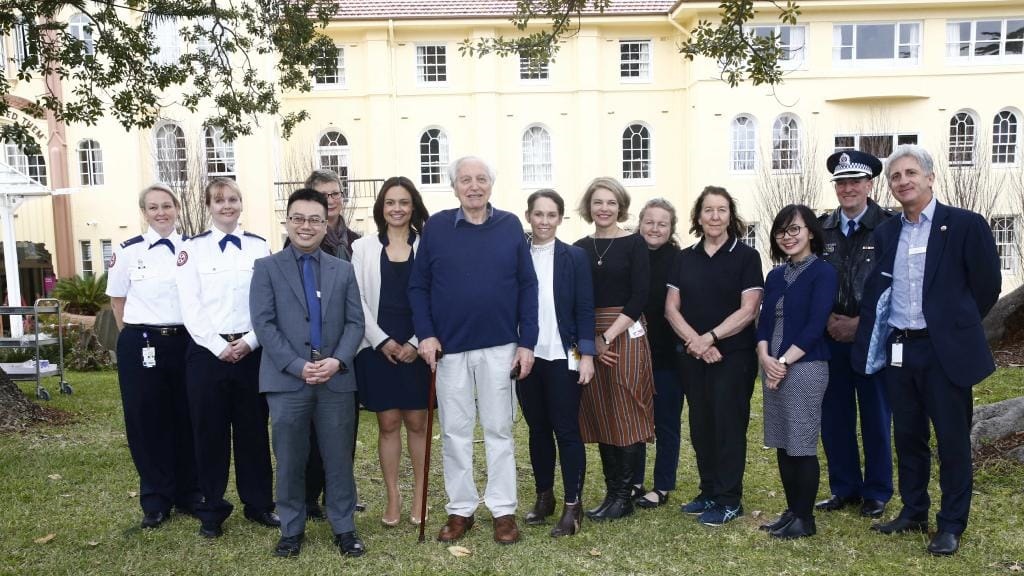Uniting War Memorial Hospital's Geriatric Flight Squad Reducing Avoidable Hospital Presentations

In collaboration with NSW Ambulance and NSW Police, the Geriatric Flying Squad (GFS) located at the Uniting War Memorial Hospital in Sydney identified that a high proportion of older persons they respond to are transported to the emergency department (ED) due to ongoing risks at home even if not acutely unwell.
It is well established that older people in ED are at increased risk for adverse outcomes, and ED is not the appropriate place to manage the multi-factorial nature of an older person’s risk factors. There is a need for innovation in response to older people being transferred to Emergency Departments [ED] by NSW Ambulance and NSW Police who could otherwise have been managed within their home or residential aged care facility (RACF).
New referral pathways
The GFS is a rapid response multidisciplinary specialist aged care service that provides assessment and management of subacute medical conditions in older people living in the community and RACFs. They aim to reduce avoidable hospital presentations and provide care of the older person in their place of residence.
To reduce the number of older people being unnecessarily transferred to EDs, the GFS established referral pathways with NSW Ambulance and NSW Police to provide an alternative care pathway. Instead of transferring to hospital, ambulance and police directly refer to the GFS and they have joint training and education opportunities.
These pathways, grounded in connecting and optimising existing services for improved health outcomes, ensure older people have access to a specialised geriatric service that can meet the needs of those at risk and/or experiencing a decline.
Collaborating with emergency services
Through the collaboration with NSW Ambulance and NSW Police, these emergency services now have access to a specialised geriatric team to facilitate decision making when considering how to best manage the older people referred to their service.
A local superintendent of NSW Police stated the collaboration is an invaluable resource for them, where before they had limited options in helping the older person at risk. Emergency services now have the option to refer to the GFS for comprehensive geriatric review to ensure the person is safe at home and formulate a management plan with the older person.
This is truly consumer centric, as care is delivered in their own home. Reflecting the view of many patients, one older person referred to the GFS from the paramedics said, “Being in hospital can be a frightening experience for an elderly person, and having the support of a team that knows how to take care of you and where you should be treated, is just such a comfort.”
Another key feature of the collaboration is education. The GFS has been providing education sessions to NSW Ambulance and NSW Police to improve knowledge on the multi-dimensional nature of ageing, risk factors, improving knowledge of aged care services and referral pathways within the aged care sector.
Outstanding results
Currently, 92 per cent of nursing home residents referred to the GFS avoid the ED. Data from local EDs has indicated a reduction in presentations from RACFs since the GFS commenced its outreach service. In addition, 85 per cent of older people in the community are able to be managed at home by the GFS, with only 3.4 per cent requiring ED transfer due to acute medical issues.
For more information, please visit:
www.uniting.org/sites/UCSCL/Lists/UnitingWarMemorialHospital?a=114708
